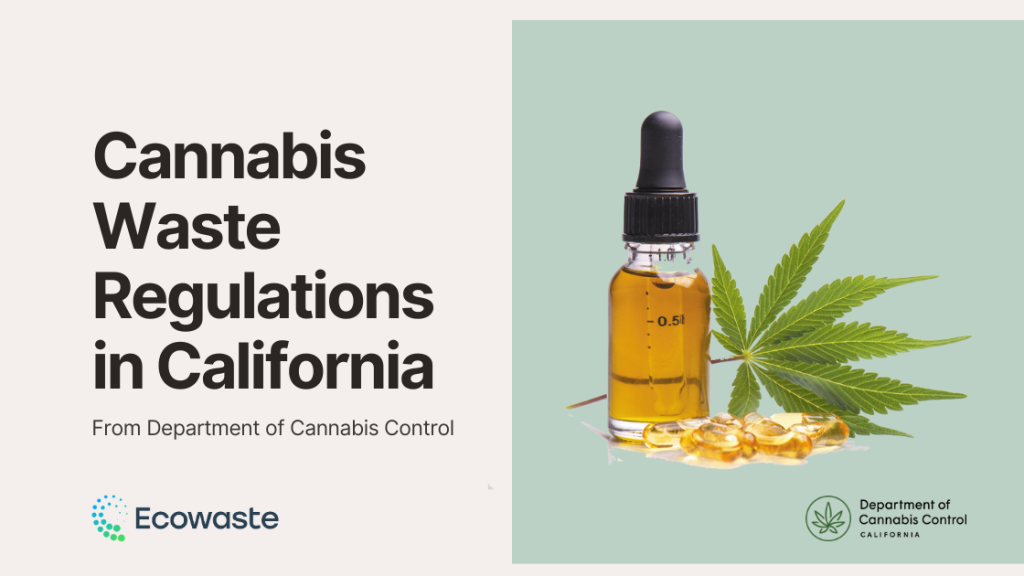As the cannabis industry continues to grow in California, so does the need for proper waste management. Cannabis operations generate a significant amount of waste, and it is crucial to comply with the state’s regulations to prevent any harm to public health and the environment. In this article, we will explore the cannabis waste regulations set forth by the Department of Cannabis Control (DCC) in California.
The DCC requires all licensed cannabis businesses to comply with specific regulations for the handling and disposal of cannabis waste. The regulations aim to minimize the impact of cannabis waste on public health, safety, and the environment.
What Exactly is Cannabis Waste?
Cannabis waste means any material that is intended for disposal that contains cannabis but is not considered a hazardous waste. It is the cannabis licensees responsibility to identify if any waste material is to be considered hazardous.
Some examples of cannabis waste:
- Unused or expired consumable products
- Flower, edibles, drinks, creams, sprays, candies, etc.
- Unused or expires vape products (excluding the battery)
- Plant material
- Leaves, stems, growing medium.
The First Step In Cannabis Waste Compliance
Before your designated waste material is set aside for disposal, it must be first rendered unusable and unrecognizable.
This ensures that any live cannabis products and/or goods are not present for illicit activities. It’s a generally accepted practice to render your cannabis waste using an organic, non-volatile, toxic, or flammable material. Mulch, dirt, topsoil, kitty litter, coffee grounds are some examples. Please verify with your compliance team and disposal provider before making any decisions.
Highlight List of Cannabis Waste Compliance
Storage
Cannabis waste must be stored in secure containers labeled with the words “Cannabis Waste.” The containers must be made of durable and non-toxic materials, and they must be kept securely locked at all times to prevent unauthorized access.
Documentation
Cannabis businesses must also keep a record of their cannabis waste disposal, which includes the date, quantity, weight and method of disposal. The records must be kept for at least three years and made available to the DCC upon request.
Cannabis Waste Disposal Options
Cannabis businesses can dispose of their waste through several methods, including on-site composting, digestion, incineration, or chip and grinding. However, you must ensure that the method they choose complies with state and local regulations in addition the the DCC.
You are also permitted to contract a waste hauler to provide cannabis waste disposal services. The hired waste hauler must follow the same regulations as the cannabis businesses, including proper storage, transportation, and disposal of cannabis waste to ensure your compliance.
The DCC may at times send you an order to destruct specific batches for failing internal quality testing, quality assurance review by a distributor, or regulatory compliance testing. During these specific disposal orders the DCC may require an on-site inspection to monitor the destruction of the cannabis waste.
Final Thoughts on California’s Cannabis Waste Disposal Regulations
Compliance with cannabis waste regulations is crucial for any licensed cannabis business in California. Proper handling and disposal of cannabis waste help prevent injury, minimize the impact on public health and the environment. Non-compliance with the cannabis waste regulations can result in significant penalties and fines. Cannabis businesses may also face suspension or revocation of their license.

California Cannabis Waste Compliance Guide
Adhering to the numerous cannabis regulations can be challenging. Our special guide is designed to simplify your cannabis waste management. One less thing for you to worry about.
Subscribe To Get Your Copy
